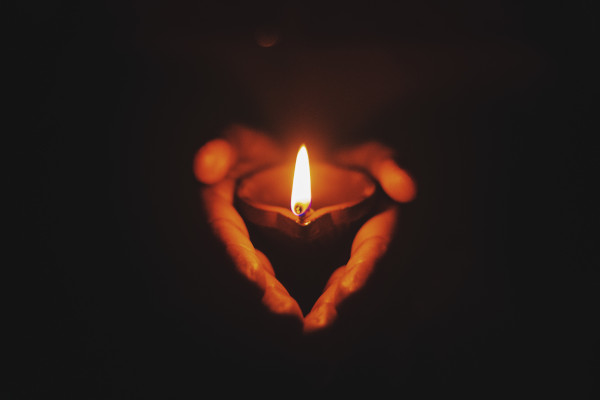"Restore and reconnect with yourself": Notes from the conversation about Healing and Trauma : Stages
"Healing and Trauma : Stages" was the theme of the 13th virtual conversation on domestic violence on 29 July, 2021.
Persons joined from New Amsterdam, Linden and Georgetown in Guyana; Barbados, Trinidad & Tobago, Canada, UK, USA.
Carlotta Boodie-Walcott shared the opening thoughts and the conversation was facilitated by Vidyaratha Kissoon
Trauma
The following points were noted about surviving traumatic experiences:-
- the experiences could be one off (eg an accident, experience of a crime, incidence of violence,), or pattern of experiences (in abusive situations, neglect as a child, compounded with other experiences)
- Trauma results in a disconnection/disassociation with self as a way the body uses to survive.. the memory/memories can be hidden or suppressed
- trauma can be manifested in different ways - insomnia, physical health problems, mental health problems, eating disorders and other addictions, dysfunctional relationships and sometimes much later on from when the incident or incidents happened
- traumatic experiences can be compounded.. "one thing on another and then another"
- persons who are helping need to understand how survivors have been impacted by traumatic experiences, not only in the abusive relationship, but also in other stages of life
- Children who witness abuse are also affected by trauma
- Other witnesses to traumatic incidents can be affected by trauma
In the discussion about healing from trauma, participants shared the following based on their experiences and knowledge :
- Healing happens in a place of safety. It is about restoring a sense of self, and to reconnect with self. Traumatic experiences result in people feeling out of body, or separate.
- Each person has their own time, and set of stages. Some people will talk about being in recovery for a long time depending on the issue, one person said 'I am a thriver' .
- Breaking silence is not easy. There is a need for a safe environment. Some people feel that remaining silent is a way of being in control of how to chart the healing process or to exit from a situations.
- One person shared that "once you can talk about it without crying it is a sign you are out of the woods or very close to leaving it behind"
- There are different ways to break silence - talking to an empathetic listener or group of listeners; writing a journal (or recording on a voice note), writing poetry, drawing. One person shared that the stages of healing could move from 'remembering and crying.. to remembering and laughing,smiling'.
- Healing involves changing the emotional reaction or emotional charge which comes with the traumatic memory. This requires self talk and self awareness and being in the present, being conscious of how the body is feeling.
- The connection with the body through dance, yoga, exercise would help with healing and recovery from trauma
- In writing the stories and the memories of trauma, it is also good to write in the narrative, or to think of what would be a new healthy outcome, and to also remind yourself of what you are doing well and what you are grateful for.
- Community support is needed for healing. Many people have been alienated from their communities, their families and friends as they try to break out of abusive relationships and to recover from other traumatic incidents. The admission of a need to heal is often seen as a sign of weakness and is punished.
- Community support for healing includes
- being conscious of the impact of trauma on persons
- providing safe spaces for people to heal from their trauma
- training empathetic people so that they can facilitate healing processes
- talking more and sharing more about ways of healing
Resources shared in the conversation :
- One survivor shared that the Emotional Freedom Technique was helpful to her
Previous conversations in the series include
- Intimate Partner Violence in LGBTIQ+ relationships
- Faith, spirituality and healing
- Prevention of sexual assault
- Survivors with disabilities
- Survivors and advocacy
- Healing in Community : People need people
- Healing for Survivors of Domestic violence
- Preventing Domestic Violence by changing our culture of violence
- Healing for child survivors of Domestic Violence
- Healing through Understanding self
Featured image by Prateek Gautam on Unsplash




Comments
Post a Comment